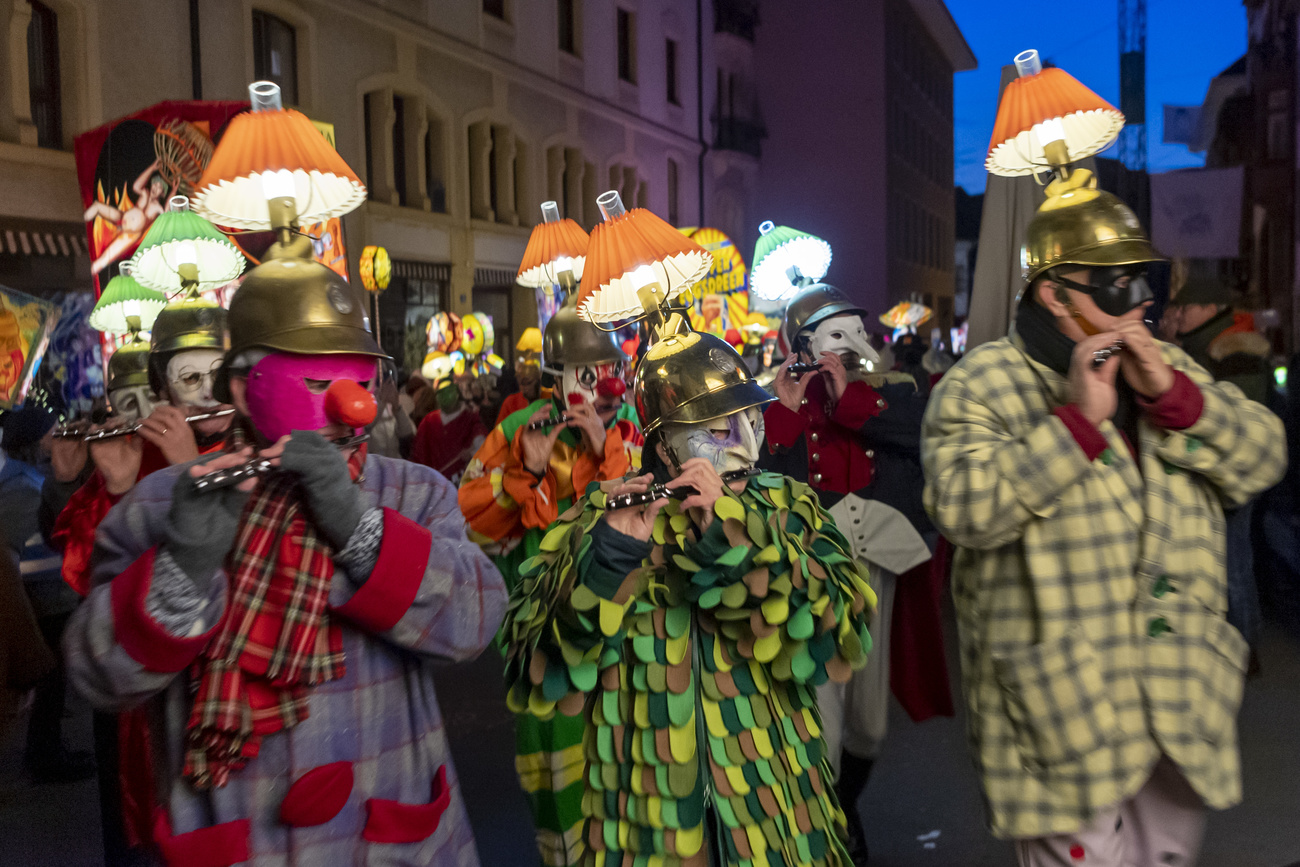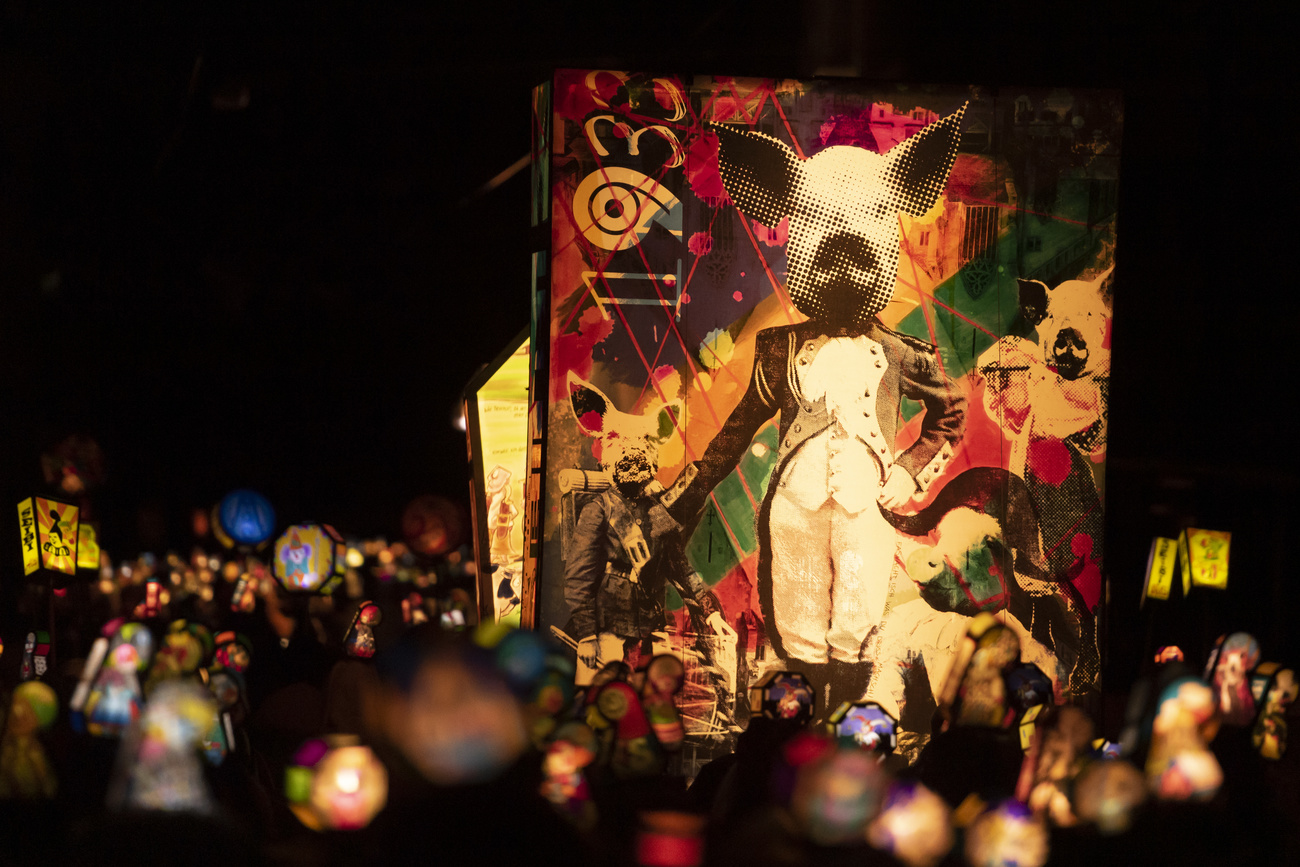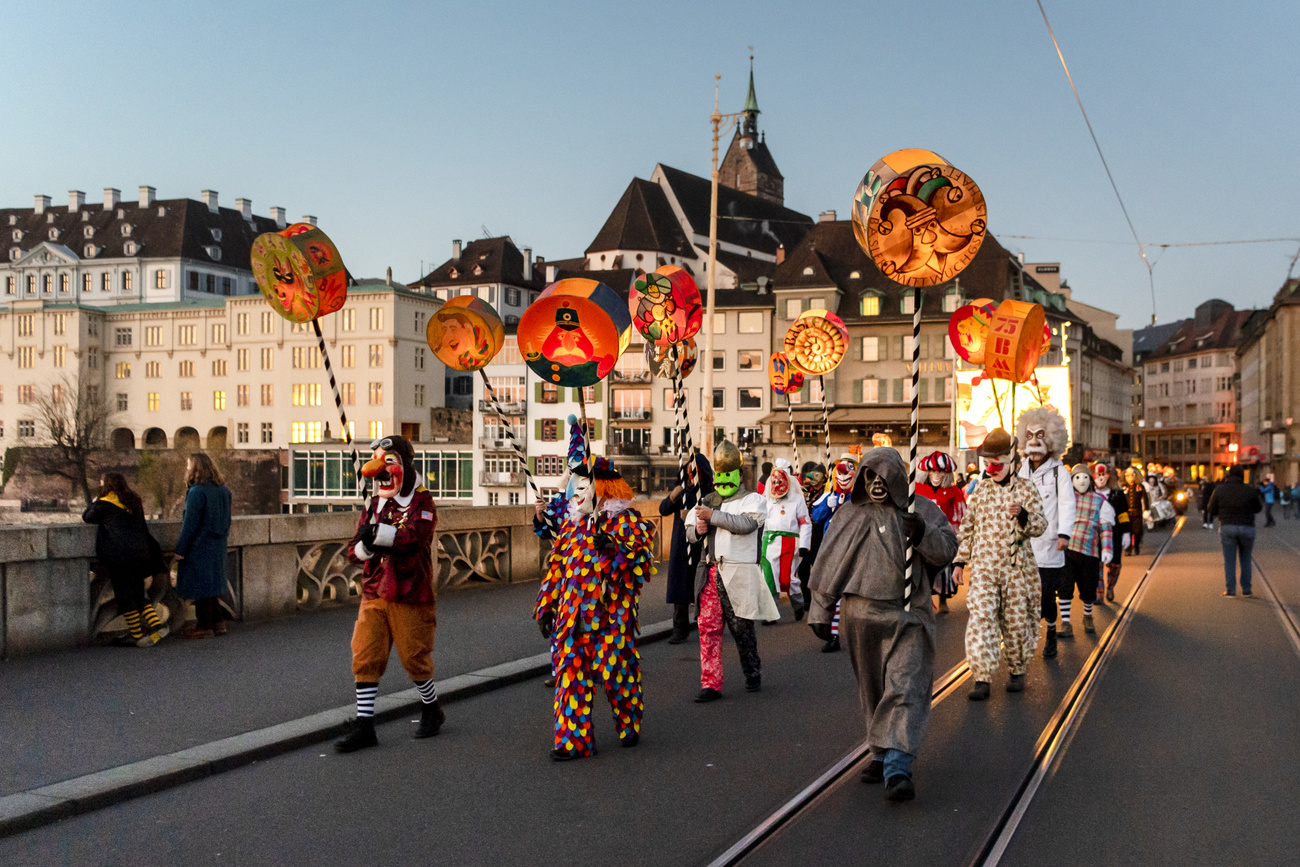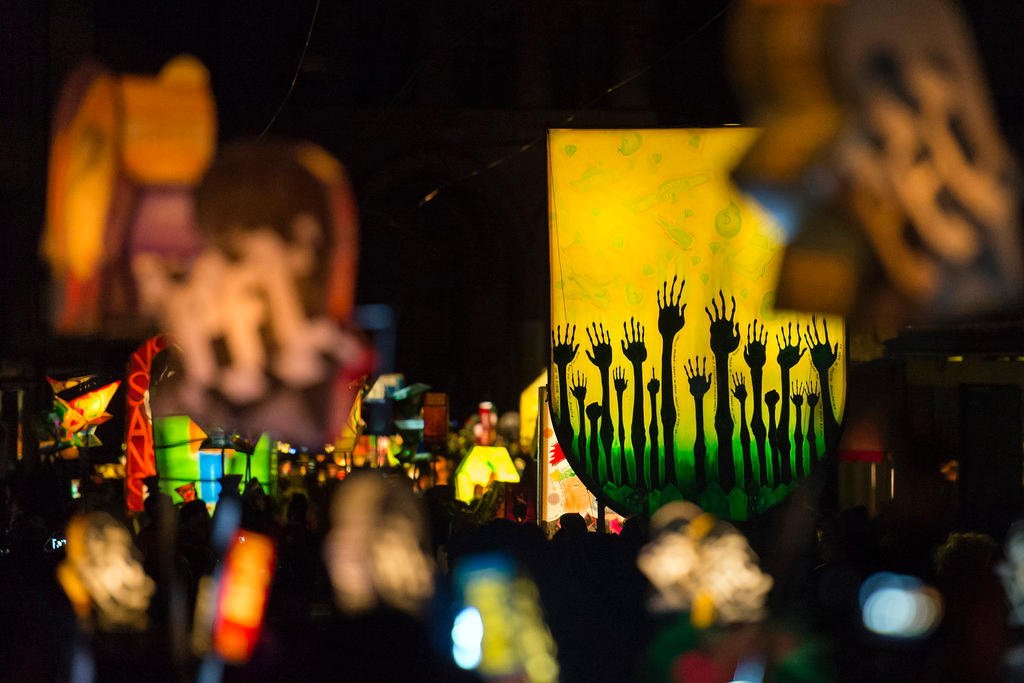
Basel’s Fasnacht carnival lights up the city again

The Fasnacht – Switzerland’s largest carnival – began in the northwest city on Monday after a two-year break due to the Covid-19 pandemic.
The long-standing tradition began as always on the first Monday after Ash Wednesday. Festivities started at 4am when the streetlights were switched off in the centre of the city and the sound of flutes and drums filled the air for what’s known as ‘Morgestraich’.
People lined the city’s streets to watch thousands of participants – costumed bands of musicians and groups wearing masks – pulling large decorative lanterns. The Basel carnival runs until 4am on Thursday.

The start of this year’s Fasnacht, which enjoys UNESCO world heritage status, was special as the previous two years had been cancelled due to the pandemic.

Prior to the outbreak of the virus, Basel’s carnival attracted around 200,000 spectators every year. There was a large turnout on Monday morning with the narrow streets packed.

The colourful carnival goes on for 72 hours. In addition to bands, groups of performers known as “schnitzelbängg” travel throughout the city’s locales performing songs and poems that poke fun at well-known people and events.

Black humour has been part of carnival since the Middle Ages, when the lower classes seized the opportunity to mock their rulers from the safety of their disguises. The jokes and decorated lanterns at Fasnacht tend to reflect local and world events.

It’s carnival season in the rest of Switzerland, too. The Lucerne Fasnacht carnival, the second-biggest in the country, finished with a bang last week, i.e. with the traditional parade of loud and masked “Guggenmusig” players.

Some 22,000 people were out late into the night, despite freezing temperatures, still-high daily coronavirus figures, and questions like “can you celebrate carnival when there’s a war in EuropeExternal link”?

More
Basel’s Fasnacht carnival wins Unesco ‘intangible’ status

More
Coronavirus: the situation in Switzerland

In compliance with the JTI standards
More: SWI swissinfo.ch certified by the Journalism Trust Initiative

























You can find an overview of ongoing debates with our journalists here . Please join us!
If you want to start a conversation about a topic raised in this article or want to report factual errors, email us at english@swissinfo.ch.